A World Leader in Multi-Purpose and Heavy-Lift Trades
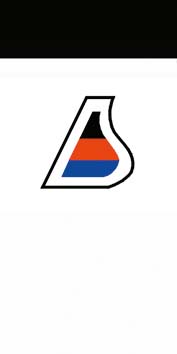
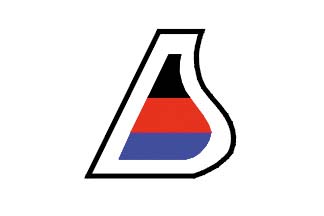 A large fleet of 160 multi-purpose and heavy-lift vessels are operated from an impressive waterfront headquarters building in the German East Frisian port of Leer by the BBC (Briese Bischoff Chartering) shipping group. Leer is located half way between Emden and the shipbuilding town of Papenburg, with the river Leda at Leer flowing into the Ems. Leer has the second highest concentration of German shipowners after Hamburg, with sixteen companies managing over four hundred vessels. This is partly due to having a thriving Institute of Maritime Studies, with students obtaining degrees in naval architecture, ship management as well as seagoing certificates to man this huge fleet of vessels. One quarter of the German merchant fleet is registered or controlled from the port of Leer, which has a history as a settled community with a chapel dedicated to St. Ludger in the year 791 AD as the first chapel in East Frisia (Ostfriesland), and an earlier history of several thousand years.
A large fleet of 160 multi-purpose and heavy-lift vessels are operated from an impressive waterfront headquarters building in the German East Frisian port of Leer by the BBC (Briese Bischoff Chartering) shipping group. Leer is located half way between Emden and the shipbuilding town of Papenburg, with the river Leda at Leer flowing into the Ems. Leer has the second highest concentration of German shipowners after Hamburg, with sixteen companies managing over four hundred vessels. This is partly due to having a thriving Institute of Maritime Studies, with students obtaining degrees in naval architecture, ship management as well as seagoing certificates to man this huge fleet of vessels. One quarter of the German merchant fleet is registered or controlled from the port of Leer, which has a history as a settled community with a chapel dedicated to St. Ludger in the year 791 AD as the first chapel in East Frisia (Ostfriesland), and an earlier history of several thousand years.
The villages of Esklum and Bingum lie at the confluence of the Leda and the Ems, with two road bridges across the Ems from Leer to Bingum. The border between Germany and the Netherlands lies just to the west of the Ems at this point, leading to quite different nation building strategies in the two countries. The land on the Dutch side of the border was drained with the peat dug out to expose the subsoil below. The result today is that it is a very prosperous region with agriculture as the dominant industry. The land on the German side of the border is called Emsland and has been less intensively cultivated due to fens on both sides of the river Ems.
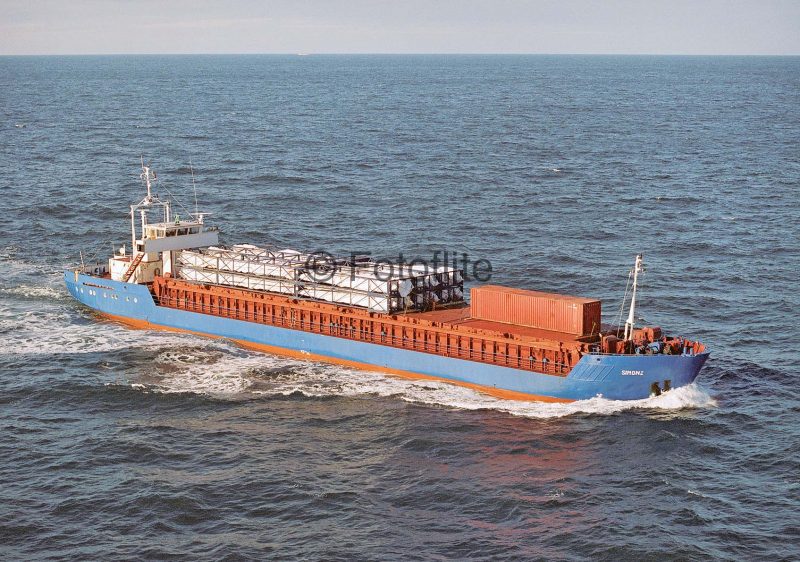
Capt. Roelf Briese And The First Fleet
Capt. Roelf Briese was born in 1944 in the fishing village of Ditzum on the west part of the river Ems, and went to sea at the age of sixteen years in deep sea ships, obtaining his Master’s ticket at the young age of 23 years. He came ashore to study naval architecture at the Leer Institute of Maritime Studies, obtaining a Diploma in Engineering, and then worked for the Institute teaching technical ship management, navigation and seafaring. In 1983, he established his own Briese Schiffahrts Gmbh & Co. KG in Leer, and four years later he began a close collaboration with the shipowner Bruno Bischoff.
The first two owned ships were being traded in 1987 as Simone of 1,600 dwt in the Mediterranean e.g. on voyages from Bizerta in Tunisia to St. Louis de Rhone, and as Sina of 4,260 dwt on deep sea voyages e.g. from Emden and Antwerp to Puerto Plata in Argentina. Seven ships were owned in 1991, again employed on European, Mediterranean and Transatlantic voyages. The fleet of 25 multi-purpose vessels that was being traded in 1995 saw further expansion from the European trades into Caribbean and worldwide trades, using vessels ranging from 2,500 to 5,000 dwt. The sisters Amke, Sina, Sun Bay and Sun Bird of 4,260 dwt were employed on worldwide voyages e.g. Demerara to Houston with sugar, Wilmington (NC) to Halifax (NS), and from Broome to Fremantle in Western Australia. The fleet was expanded at the Millennium from a combination of newbuildings and purchased vessels including the feeder container ships OPDR Cadiz, OPDR Lisboa and OPDR Tanger of 435 TEU capacity in twin cellular holds on charter to Oldenburg Portugiesche Damps Rhederi (OPDR) of Bremen, and the ro-ro Medstar of 5,627 grt built in 1990 as Martha Russ for Ernst Russ Gmbh of Hamburg.
The fleet were given names that have been repeated down the years including Alta Mar, Dollart, Bavaria, Frigga, Hannah, Hanse, Hematland, Koppersand, Leknes (launched as Wilke), Leysand, Miramar, Musketier, Porthos, Remmer, Santiago, Star, Tanja, Tornator and Wilke, the latter named after the son of Capt. Roelf Briese. This fleet was initially built up from German and Dutch yards, in particular the Pattje yard at Waterhuizen, the Bodewes yard at Foxhol, the Cassens yard at Emden, the Paul Lindenau yard in Kiel, the Julius Dietrich yard at Oldersum and the Damen yard at Gorinchem. Later, hulls were launched at the Damen yards in Nikolayev and towed to their yards at Foxhol and Gorinchem for completion. Yards in Eastern Europe were also used, including the Rousse yard in Bulgaria, the Slovensko Loderice yard at Komarno in Slovenia, the Brodogradiliste yard at Novi Sad, and the Stocznia Polnocna S.A. or Northern yard in Gdansk.
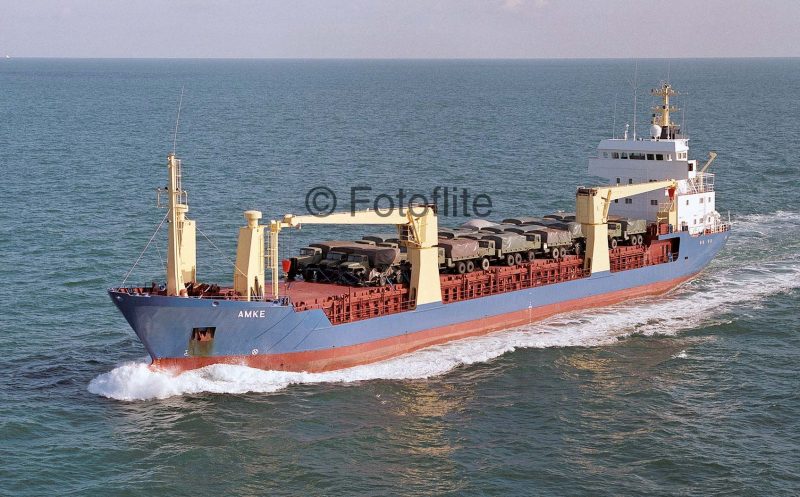
In 2005, Briese invested in shipbuilding on a more local level through the acquisition of a large part of the 41,000 square metres of the Jansen shipyard area in Leer. This was designed to revive shipbuilding activity in Leer under the name of Nessewerft shipyard. Several steel processing and electrical companies have located within the shipyard, enabling it to offer more than just maintenance services. Briese vessels are repaired here, and five cargo ships were converted to burn heavy fuel oil instead of diesel oil, and then shipbuilding commenced with the first float-out and delivery in 2008 of the vessel Borgenfjord of 3,300 dwt. A number of Briese related and associated companies had also been set up in Leer including the crewing agency Leda Shipping Gmbh, Ems Offshore Service Gmbh, Ems Port Agency and Stevedoring Gmbh, and ETB Befractungs Gmbh.
BBC Chartering And Logistics
Briese Bischoff Chartering (BBC) was set up in Bremen in 1997, with Argosy Shipping becoming their representative for North America in the offshore and oil related industries of Houston (Texas). Heavy lifts and project cargo soon became a speciality for BBC (U.S.A.) with the vessel BBC America of 4.900 dwt, completed in 1999 being the first vessel of the fleet with a ‘BBC’ prefix to her name. She carried heavy lift cargo when she sailed from Dubai on 1st December 1999 for Benghazi, and then moved up in ballast to the Tyne to load reels of flexible oil pipeline for Houston. A sister, BBC Anglia, formerly named Industrial Alliance, was also operating from Houston at the end of 1999 along with her owned sisters Industrial Explorer, Industrial Harmony and Industrial Unity. These belonged to a large class of heavy lift vessels equipped with twin 60 tonne cranes to lift cargo into their single holds, and had been built by the Stocznia Polnocna (Northern) yard at Gdansk and the Xingang yard in China on dimensions of length 100.6 metres, moulded beam of 16.6 metres and draft of 6.4 metres with a service speed of 15.5 knots from nine cylinder M.A.N. diesel engines.
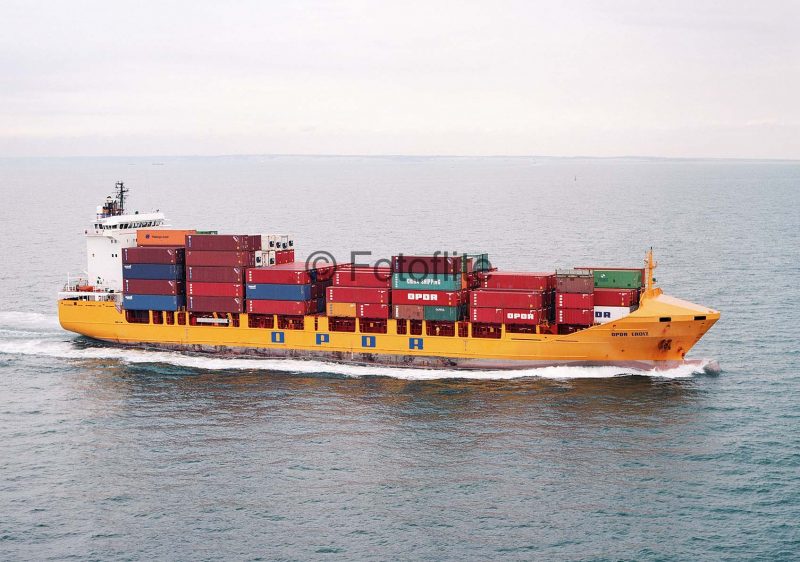
Briese Bischoff Chartering (BBC) moved its headquarters to Leer at the end of 1999, and also opened a subsidiary at Tianjin in China near the Xingang shipyard to supervise the construction and certification of owned and other newbuildings in Chinese yards, and also another subsidiary in Campana in Argentina. A fleet of ten heavy lift vessels with ‘BBC’ names – BBC America, BBC Anglia, BBC Australia, BBC Brazil (ex Industrial Harmony), BBC Canada, BBC Denmark, BBC Finland (ex Norderney), BBC Frisia (ex Calypso), BBC Germany and BBC Texas (ex Tina) – were moving cargoes between the ports of Houston, Tyne, Veracruz, Zhanjiang, Guangzhou, Hong Kong and other Chinese ports, Rio de Janeiro, Guayaquil, Rotterdam, Famagusta and many other ports worldwide at the end of Millennium year. The Suez Canal was transitted many times by the fleet in moving heavy lift cargoes between the Far East and European ports.
A year later in 2001 the BBC fleet had grown to twenty owned and chartered vessels including BBC Columbia, BBC Clipper, BBC Denmark, BBC Finland, BBC Frisia, BBC Gibraltar, BBC Japan, BBC Mexico, BBC Norland, BBC Pacific, BBC Peru, BBC Portugal, BBC Sealand, BBC Shanghai, BBC Spain, BBC Texas and BBC Venezuela. BBC Finland and BBC Iceland, the latter renamed from Industrial Accord in 2002, and other members of the fleet carried many cargoes of reels of flexible pipeline during 2003/03 from the Tyne factory of Wellstream, recently taken over by GE Oil and Gas based in Houston, Rio de Janeiro and Perth in Western Australia.
New services were offered to customers during 2002/03, including BBC Bremen, BBC St. Petersburg for Russian customers, BBC do Brasil for Brazilian customers to join forces with BBC Argentina for the South American markets, BBC Korea, and BBC Andino for a reliable and committed service for the oil and project cargoes of Venezuela, Central America and the Caribbean in general. BBC (U.S.A.) had by now become the link between all cargoes from the Americas to and from Europe, directing the chartering, operations, sales and marketing, and technical management and securing of heavy lift cargoes on vessels calling at ports in the United States. A Briese owned and chartered fleet of sixty ships was being traded in 2003, with thirty of these having ‘BBC’ prefixes to their names.
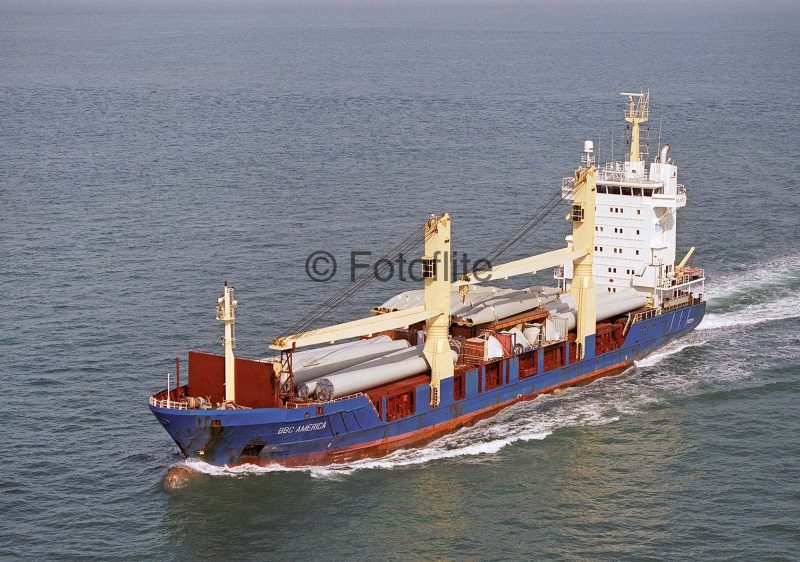
The vessel BBC China of 5,548 grt and 6,500 dwt was completed at the Qingshan yard at Wuhan in China in July 2001 as Beluga Superstition with two heavy lift cranes of 120 tonnes capacity to lift heavy cargo into her twin holds and ‘tween decks. She was to have a short but active career of only three years and was purchased by Briese in 2002. She was ordered to divert to an Italian port in October 2003 while carrying gas centrifuges for uranium enrichment to Libya. The order was given by Condoleezza Rice, U.S. National Security Advisor and later Secretary of State, due to American intervention PSI (Proliferation Security Initiative) legislation to prevent a nuclear weapons programme in Libya. BBC China came to an untimely end a year later on 16th October 2004 when she ran aground at Port Grosvenor, about 110 miles south of the port of Durban, while on a voyage from Port of Spain (Trinidad) with a mix of breakbulk cargo and assorted project cargo machinery for the Persian Gulf and India. This is a notoriously wild part of the South African coast with her crew airlifted to safety and most of her hazardous oil fuel removed by the salvage team. She could not be refloated and was declared a constructive total loss and demolished by explosives.
Two general cargo vessels of 20,560 dwt, built by Flensburger Schiffwerft at Flensburg during 1998/99, were purchased in 2002 from Egon Oldendorff of Lubeck as Lily Oldendorff and Paul Oldendorff and were renamed as BBC Argentina and BBC Rheiderland respectively. They have since operated on charter to Delmas of France, D’Amico of Italy and other worldwide shipping companies, and currently carry the names of BBC Ostfriesland and BBC Rheiderland, and have a loaded draft of 9.75 metres and are equipped with two cranes of sixty tonnes capacity, combinable for heavy lifts of 120 tonnes. Two further Flensburg built sisters to this pair have also been purchased by Briese and BBC in Julius Oldendorff renamed BBC Bunde and Cathrin Oldendorff renamed as BBC Leer but currently trading as BBC Seattle.
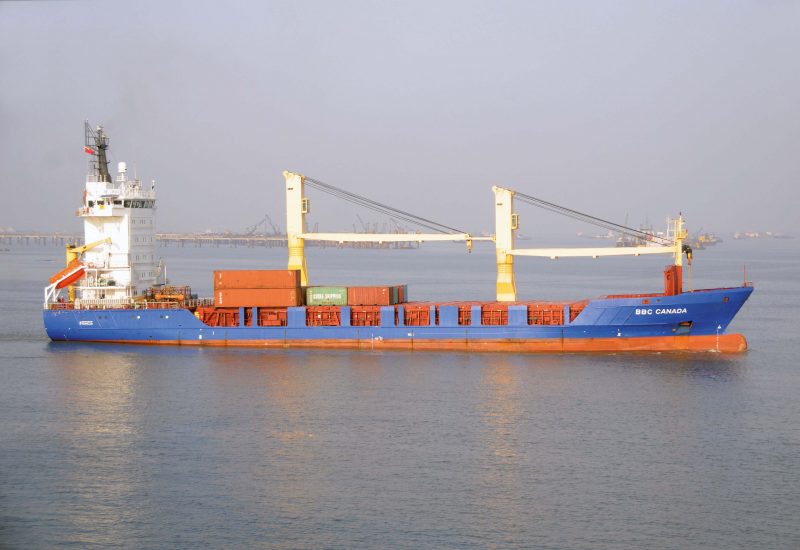
Alliances In Heavy Lift And Project Cargo
In 2004, Asia Project Chartering (APC) was formed as a joint venture with heavy lift specialist Clipper Elite Carriers (CEC) of Denmark to form a very important alliance in the heavy lift and project cargoes fields. The mission was to develop the Asian market under the brand name of APC based in offices in Singapore, Dubai and Melbourne. The first APC service linked Far East ports with the east coast of South America. An APC sales team was based in Japan from 1st June 2006 to give a professional service to Japanese steel, shipbuilding and other clients. On 1st July 2009, this alliance was dissolved and BBC assumed sole responsibility for the further penetration of the Asian market under the APC brand name.
The founding of Caytrans BBC in 2006 was another important milestone in the development of BBC heavy lift shipping, with a joint venture with Dan-Gulf and based out of New Orleans to develop the Caribbean heavy lift market. BBC Islander of 4,980 dwt was on charter to Caytrans BBC during 2007/08. Terras BBC was formed later in 2010 as a joint venture with Terras Cargo Transport of America for the ownership of the American flagged heavy lift motor vessel BBC Houston for shipments of heavy oil modules from the oil port of Houston.
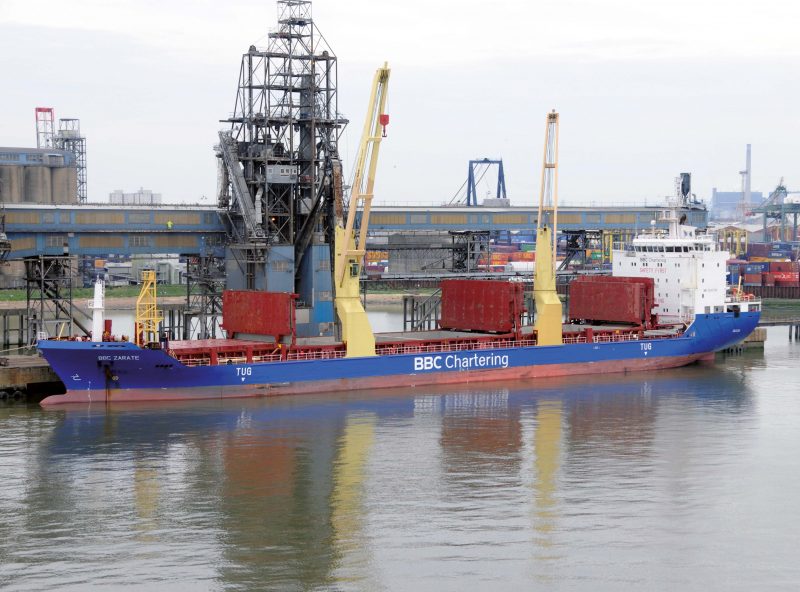
Close collaboration to fully understand the requirements of customers is essential during alliances, none more so than the Papua New Guinea services in alliance with Pacific Container Line (PCL) Agencies. An alliance was formed in 2011 to run modern heavy lift and ro-ro shipping from Australia and Singapore to Papua New Guinea calling twice monthly at remote ports with little or no infrastructure such as Motukea Island on the south side of Papua New Guinea, as well as at the developed Port Moresby, Lae, Madang, and Salamaua ports. PCL Agencies, a division of Agility Project Logistics, has a 25 year history of trading to Papua New Guinea as a ship’s agency for liner and chartering partners such as BBC Chartering, and focuses closely on oil and gas, and mineral and mining customers.
An alliance was formed in August 2016 between the Briese Group and Auerbach Schiffahrt of Hamburg in order that both companies would work more closely together in heavy lift shipping, project management and ship management. Auerbach Schiffahrt Gmbh & Co. KG was founded in Hamburg in 2010 and currently has a fleet of six multi-purpose and heavy lift vessels with a further two ships on order in China.
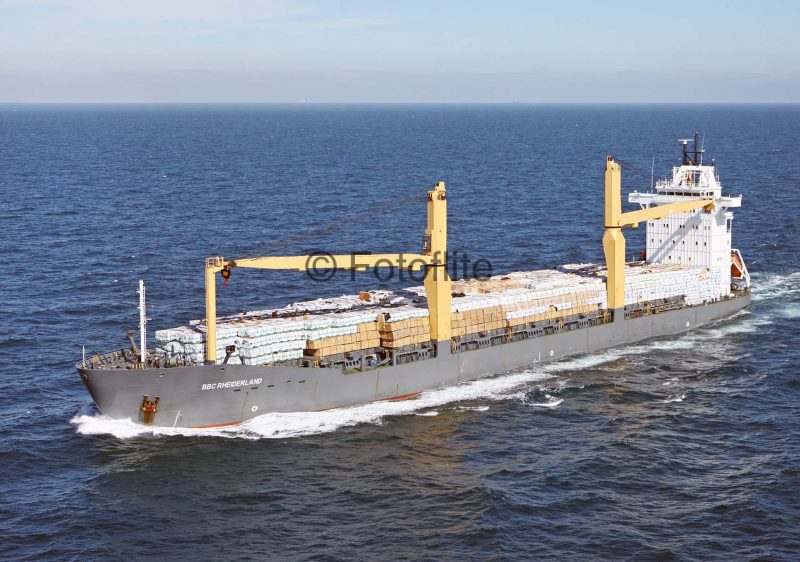
Scheduled BBC Liner Services
The heavy lift and project cargo markets had been sufficiently developed by 2005 for BBC to launch three liner services to offer scheduled general cargo and project cargo dates for shipment. These three liner services were the BBC Andino service for customers in Central America and the west coast of South America, the BBC Americana service for customers in Brazil, Argentina and other east coast South America countries, and the APC Liner Service for Asian customers. This became a highly developed series of twelve scheduled liner services by 2011, as follows:-
- BBC Trans-Pacific Service linking Shanghai, Masan, Kobe and Yokohama to Long Beach, Houston and Charleston
- BBC Andino Express Line Service linking Houston, Vera Cruz and U.S. Gulf ports to Venezuela, Panama, Esmeraldas, Guayaquil, Callao, Puerto Angamos, Antofagasta, Valparaiso and San Antonia
- BBC Andino Express Line Far East Service linking Masan, Busan, Kobe and Yokohama with Guayaquil, Callao, Antofagasta and Valparaiso
- BBC Andino Express Line European Service linking Hamburg, Pori, Antwerp, Bilbao to Charleston, Esmeraldas, Guayaquil, Paita, Callao, Puerto Angamos, Antofagasta, Valparaiso and San Antonia
- BBC Americana Line Service linking Houston and U.S Gulf ports to Venezuela, Salvador, Vitoria, Rio de Janeiro, Santos and Buenos Aires
- BBC Americana Line Far East Service linking Xingang, Shanghai, Singapore, Durban, Cape Town, Vitoria, Rio de Janeiro, Santos and Buenos Aires
- BBC Americana Line European Service linking Hamburg, Pori, Aberdeen, Antwerp, Bilbao, Itaqui, Salvador, Vitoria, Rio de Janeiro, Santos and Buenos Aires
- BBC Asia Africa Express Line linking Xingang, Busan, Kobe, Yokohama, Shanghai, Singapore, Aden, Suez, Alexandria, Constantza, Marsa el Brega, Algiers and Arzew
- BBC Russian Services comprising North Sea, Baltic, Mediterranean, Black Sea, Caspian Sea and Arctic Sea services under the four titles of BBC Baltic Service, BBC Black Sea Service, BBC Caspian Service and BBC Arctic Service
- BBC Gulf Line Service linking Houston, Vera Cruz, Mobile, Muscat, Jebel Ali, Doha, Dammam, Jubail and Shuwaikh
- BBC Caytrans Service linking Houston, Tampico, Mobile, Puerto Cortes, Kingston, Cartagena, Barranquilla, Santa Marta, Maracaibo, Guaranao, Puerto Cabello, La Guaira, Guanta and Port of Spain in Trinidad
- BBC South America Middle East Service linking Buenos Aires, Santos, Rio de Janeiro, Vitoria, Cape Town, Durban, Richards Bay, Mumbai, Muscat, Jebel Ali, Abu Dhabi, Dammam, Dubai, Umm Qasr, Kuwait and other Persian Gulf ports.
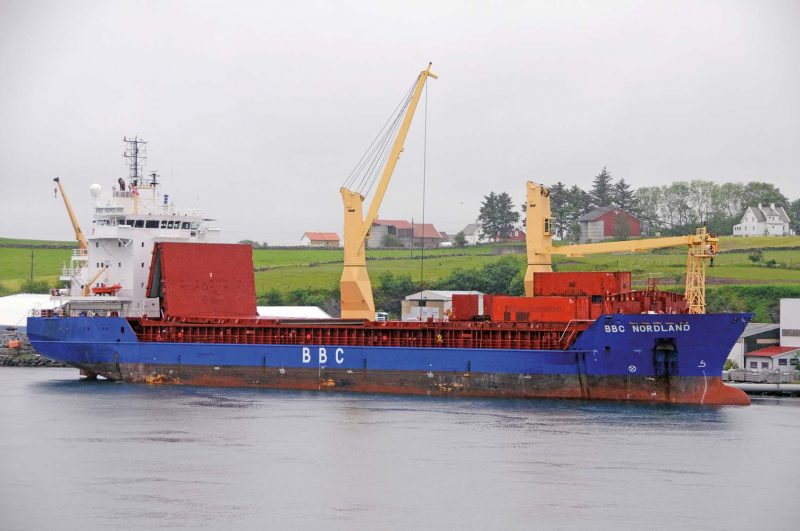
All of these scheduled liner services would call at intermediate ports if cargo inducement offered, and were carrying general cargo, project cargo of all types including oil and gas modules, green energy solar panels, heavy industry cargo, mining industry cargo, vehicles and yachts, wind farm and turbines broken down into nascelles, blades and towers, as well as containers and bulk cargo of all types.
The versatility of the pioneering Briese and BBC fleet was shown by the profits generated in the November 2006 annual report announced by Svend Andersen, CEO of BBC, from a fleet of seventy owned and chartered vessels of up to 12,000 dwt. Project and heavy lift cargo had been carried during the past year ranging from heavy generators and similar heavy lift cargo to hazardous cargo and military cargoes for the U.S. Military Sealift. The company fully integrated logistics team had used port intermodal facilities i.e. rail networks to move these large items into and out of ports to provide a door to door service for customers.
The vessel BBC Trinidad was attacked by pirates off the coast of Somalia in August 2008, with her thirteen man crew held in captivity for three weeks before being released. Briese and other German shipowners then demanded that action be taken by the German Navy together with warships of an international force targeting the fast pirate boats. The combined Briese Schiffahrts and BBC fleets were very large at this time and a prime target for the pirates.
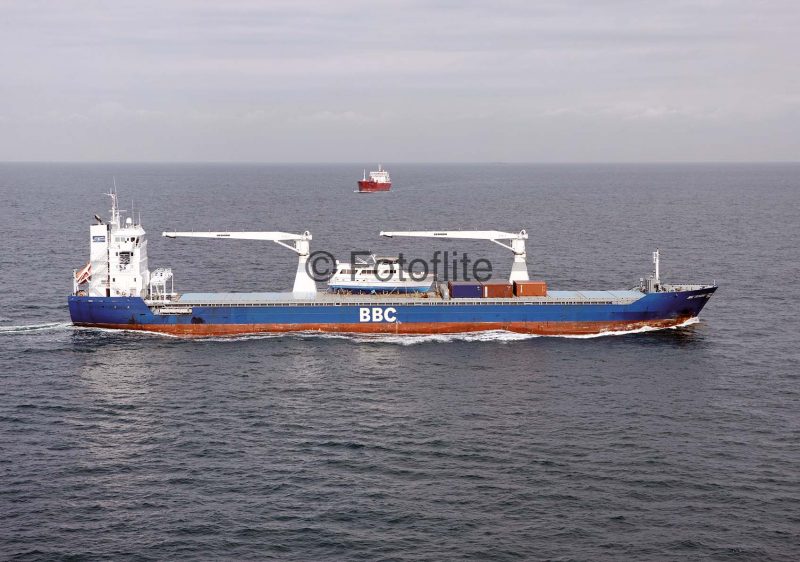
BBC Polonia was attacked by pirates on 2nd July 2010 with one seafarer killed and fourteen others captured to the south of the Bonny oil terminal in the Niger delta in Nigeria. The captives were released after two days, but her German Master aged 71 years was in a badly distressed state when safely taken onboard a Nigerian Navy patrol boat.

Beluga Heavy Lift Competitor
The BBC company motto is ‘Our Objective is the satisfaction and happiness of the charterer’, with a similar motto for a German competitor based in Bremen, Beluga Heavy Lift Shipping. Beluga was founded in December 1995 by Niels Stolberg in Bremen to operate in the same heavy lift and project cargo market segments as BBC. Beluga was the first company to send a heavy lift ship from Europe to Asia by the Northern Sea Route along Siberia and the Arctic Ocean rather than via the Suez Canal. Beluga BBC America was formed by the Beluga heavy lift team forming a joint venture with BBC for U.S. Project cargoes in June 2006, with the vessel BBC India chartered from Beluga Shipping Gmbh. The Beluga fleet had reached a maximum size of seventy ships at the end of 2010 when financial problems arose and the company was declared bankrupt in March 2011. Some 670 employees became idle, with the 49.5% shareholder Oaktree Financial Management taking over the fleet, and forming Hansa Heavy Lift (HHL) and investing E20 million to take over sixteen vessels.
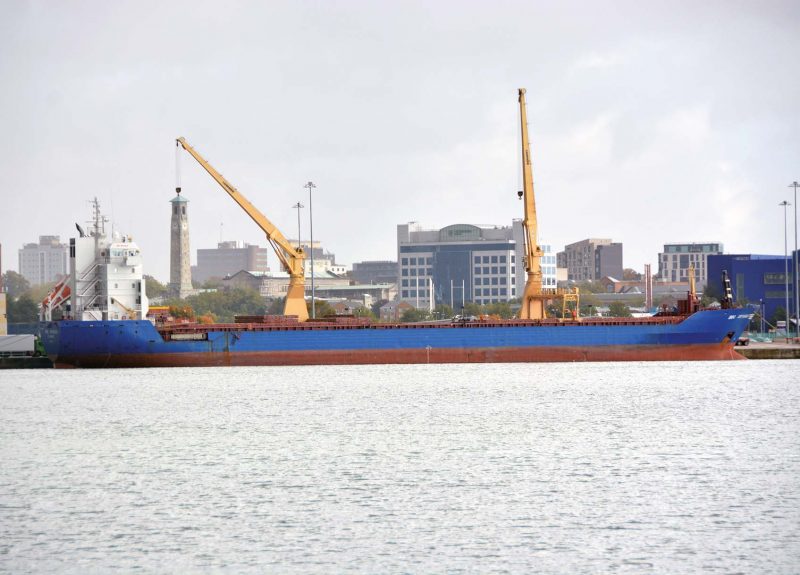
They were given red hulls and names with an ‘HHL’ prefix followed by a port name. Some twenty Beluga heavy lift ships came across to BBC after purchase, including:-
- BBC Spring the former Beluga Sao Paulo but launched as Beluga Participation
- BBC New York the former Beluga Nation
- BBC Skysails the former Beluga Skysails. This ship had been completed at Foxhol at the end of 2007 after the hull had been built at Belgrade and towed to Foxhol, and she was shown to the maritime press at Hamburg on 15th December 2007 as she was equipped with a single ‘parasail’ designed to be flown from her fo’c’stle and to reduce her fuel consumption by 5%. She is equipped with two cranes each of 40 tonnes capacity, combinable for lifts of 80 tonnes capacity, and is of 9,821 dwt with a loaded draft of 7.73 metres and cubic capacity of 451,900 cubic feet.
- BBC California the former Beluga Fraternity
- BBC Carolina the former Beluga Fantastic
- BBC Celina the former Beluga Firmament
- BBC Hawaii the former Beluga Evaluation
- BBC Maple Lotta the former Beluga Fascination, Canadian flagged
- BBC Maple Lea the former Beluga Flirtation, Canadian flagged
- BBC Quebec the former Beluga Fiction
- BBC Rhine the former Beluga Gratification
- BBC Washington the former Beluga Efficiency
- BBC Steinhoeft the former Beluga Fusion
- BBC Steinwall the former Beluga Function
- BBC Tennessee the former Beluga Felicity
- BBC Texas the former Beluga Fighter
- BBC Thames the former Beluga Graduation
- BBC Idaho the former Beluga Flashlight
- BBC Haren the former Beluga Loyalty
- BHS Pool Weser-EMS GMBH and Co. KG
On 30th May 2014, a new German heavy lift pool was created by Briese of Leer and Harren & Partner of Bremen as the ‘BHS POOL WESER-EMS GMBH and Co. KG’. Fifteen vessels including Palmerton of 10,258 dwt, Palembang of 10,124 dwt, Palau of 10,124 dwt, Palabora of 10,124 grt, EIT Palmina of 9,500 dwt, EIT Paloma of 9,500 dwt, Pantanal of 7,500 dwt, Panagia of 7,500 dwt and Patria of 5,795 dwt of the Harren & Partner fleet formed the initial fleet, and were managed by BBC Chartering and Combi Lift. Harren & Partner and Combi Lift have a fleet of 54 vessels employing 160 onshore staff and 1,800 seafarers built up over a period of 25 years. Combi Lift has its headquarters in Denmark and is a joint venture between J. Poulsen Shipping of Denmark and Harren & Partner.
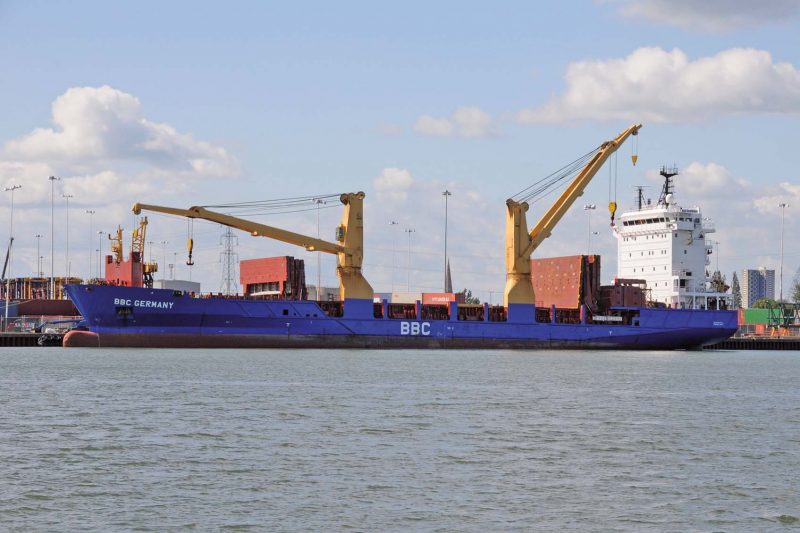
A sizeable fleet of heavy lift and semi-submersible dock ships is operated by Combi Lift. At the time of the creation of the new pool, BBC ships were busy throughout the world with heavy lift cargoes. BBC Switzerland unloaded a heavy long stator on to a barge at Busan together with tall assorted machinery, while BBC Fuji discharged a large yellow navigation buoy at Kristiansund in Norway using a spreader and her twin heavy lift cranes working in tandem for NARCO of Norway, together with a large number of reels of flexible oil pipeline.
Unusual Voyages And Exceptional Loads
BBC Danube arrived safely on 6th December 2013 in Terra Nova Bay at the South Korean Jang Bogo research station in the Antarctic with a cargo of construction material for a new research station. The buildings had been broken down into components and packed into hundreds of containers. The voyage had started with the loading of construction cargo at Pyeongtaek in South Korea with subsequent calls at Port Kembla and Hobart. BBC Danube sailed from Hobart on 19th November and was escorted through very thick pack ice by the icebreaker Araon, requiring help on 37 occasions when she became icebound before finally reaching her destination.
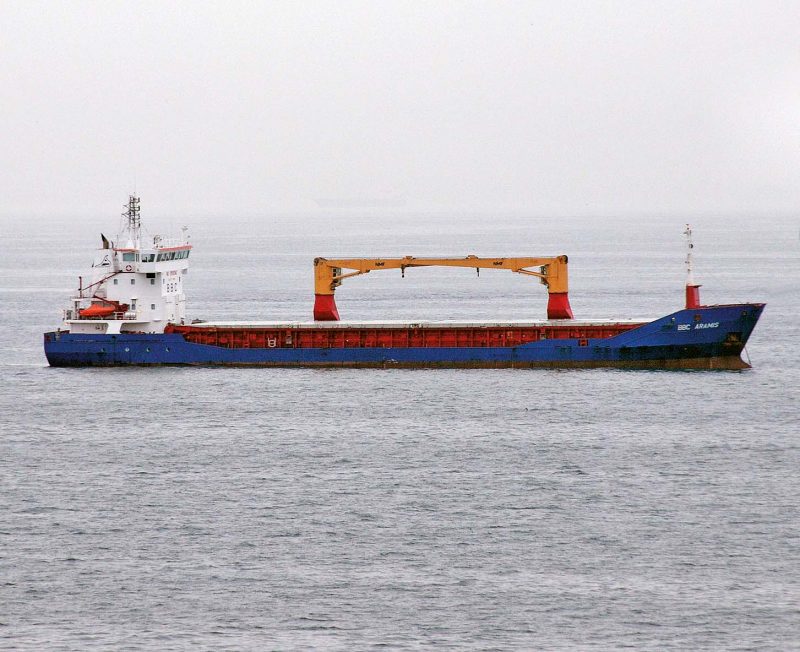
Unfortunately, a tragedy happened at the beginning of December when the blades of the helicopter of Araon collided with the superstructure of the vessel, causing it to crash and a severe fire severely injured the pilot who was airlifted to an Australian hospital, where he eventually recovered from his injuries.
Antarctic supply missions have also been made by BBC Ems to the U.S. Research Base at McMurdo Sound in 2011, by the owned container vessel Langeness to the Spanish Juan Carlos I base in 2010, and by BBC Singapore to the German Neumeyer station for the Alfred Wegener Institute in 2006.
Arctic supply missions to the Hope Bay gold mine in Canada, and the delivery of oil refinery equipment to the Antipinsky refinery at Tyumen in Western Siberia were completed by the end of the Arctic open season in September 2015.
BBC Chartering was awarded a contract in June 2014 to carry four accommodation blocks of six storeys in height from Dalian in China to Rio de Janeiro to be placed in position on four oil tankers being converted into the P-67, P-75, P-76 and P-77 FPSOs for operations in the Santos Basin oilfield of Petrobras of Brazil. BBC Sapphire carried the first of these heavy lifts, which were the heaviest cargo ever carried by BBC Chartering at 1,380 tonnes each. The previous heaviest cargo ever loaded on to a BBC vessel had been in 2009 when a coaster with a steel weight of 1,200 tonnes was loaded on to the deck of the vessel BBC Leer.
BBC Shanghai was chartered by the French nuclear company Aveva to carry radioactive nuclear waste into Port Kembla in Australia for storage and reprocessing in December 2015. However, on arrival in the port, the vessel was met by a storm of protest from small vessels owned by local people, as well as condemnation by Australian senators. The cargo was destined for the Australian Nuclear Science and Technology Organisation (ANSTO), which admitted that the radioactive material would have to be stored for a considerable period before a reprocessing plant could be built. Radioactive or hazardous material has been carried by BBC vessels on other occasions, with BBC Haren unloading such material in tanks and containers at Halifax (NS) in January 2016.
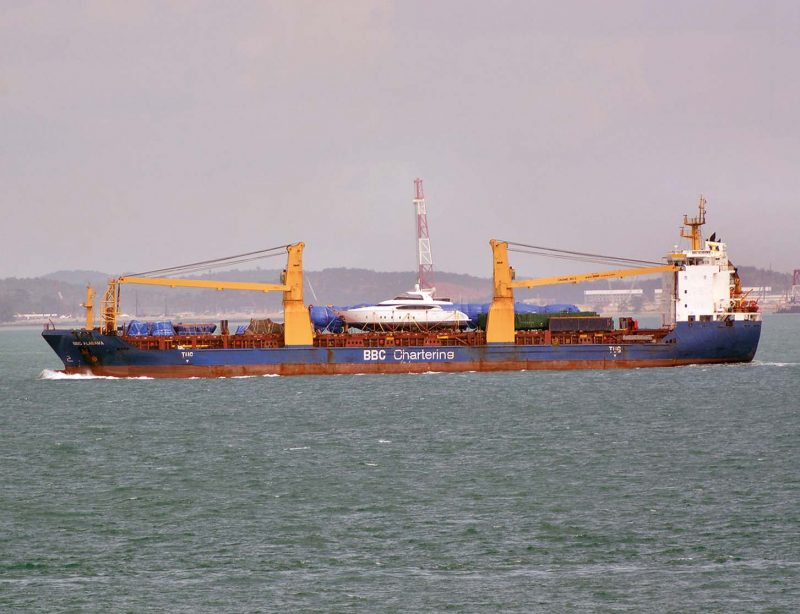
Unwieldy deck cargo comes in many forms for BBC vessels, including giant spherical gas membrane spheres for unloading at shipyards building LNG vessels in the Far East. The carriage of long wind turbine blades poses other problems, with one solution being to firmly enclose eight blades at a time in a gantry, so that they do not roll about and cause damage to each other en route. BBC Balboa carried the first cargo of German wind turbines into the Great Lakes in October 2012 when she arrived at Muskegon (Michigan). Unloading took some time as storm conditions in Lake Michigan forced the vessel to suspend her operations for several days. BBC Oder of 16,950 dwt carried two new Gottwald mobile cranes in fully erect form to the new Matadi Gateway Terminal in the Congo in two separate voyages in August and September of 2016. The cranes are designed to serve Panamax container ships with a working radius of 51 metres. BBC Oder then transported heavy reels of flexible pipeline from the Tyne to Houston and other oil ports for GE Oil and Gas and Technip Umbilicals.
BBC Chartering vessels routinely use their own twin heavy lift derricks to load and discharge cargo up to 800 tonnes in weight e.g. BBC Citrine loaded a steam generator of 683 tonnes at Masan in Korea on 16th November 2014, BBC Sapphire discharged two heavy cylinders of 630 tonnes and 190 tonnes at Moji in Japan on 19th November 2014, BBC Kibo became the first vessel to discharge at the new berth in the new port of Talara in Northern Peru on 25th May 2016 after arriving with a cargo of a dozen heavy units of oil related equipment in her holds, BBC Fuji loaded the large superyacht Lady May with a steel weight of 750 tonnes at Rotterdam in July 2015, and BBC Everest loaded several large diameter cylinders into her holds at Masan in Korea in June 2014, with a similar cargo loaded at the north port in Buenos Aires during 2015.
The new M. & G. Chemicals petrochemical plant at Corpus Christi opened at the end of 2016 after numerous deliveries of construction equipment by a fleet of seven BBC heavy lifters including BBC Arizona, BBC Elbe, BBC Sapphire, BBC Rushmore and BBC Vermont. A total of 350,000 tonnes of construction material was moved from Shanghai and Nantong in China and Taranato in Italy for this project. BBC Ruby made her maiden voyage in January 2016 from Donghae in South Korea to Davisville in the U.S.A. with two carousels filled with 3,200 tonnes of flexible cable and equipment, and 9,300 tonnes of breakbulk cargo and two items weighing in at 415 tonnes and 265 tonnes carried on deck from Masan in Korea to Jeddah, Yanbu and Jizan in Saudi Arabia. BBC Aquamarine transported three new mobile cranes in 2016 to Chile, two to Puerto Lirquen and the remaining crane to Porto Angamos, she then voyaged from Singapore to Brazil to deliver a heavy drilling floor unit and a large accommodation block with a total weight of 1,200 tonnes as deck cargo and using external harbour lifting cranes.
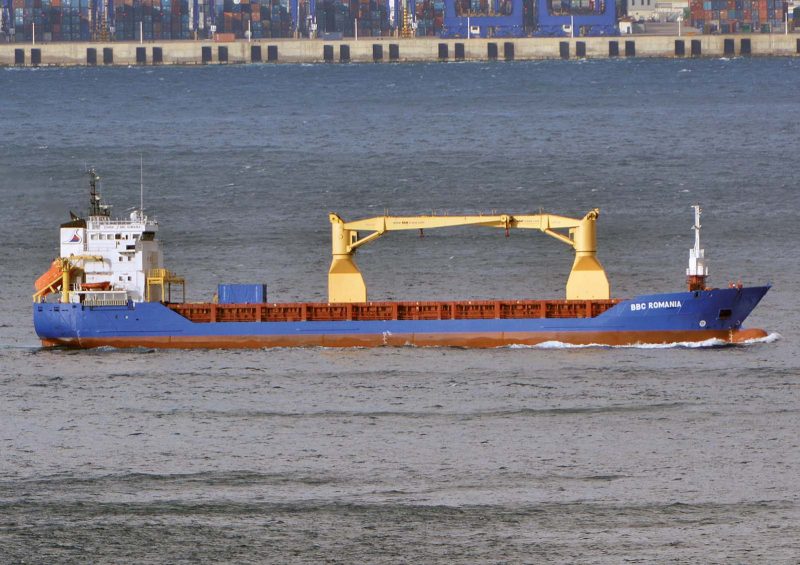
The BBC Current Heavy Lift, Container And Bulker Fleet
The huge BBC controlled fleet of 160 owned and chartered vessels has been built up over 35 years by building identical vessels in classes, with the only variable being slight differences in the number of heavy lift cranes carried and their capacity. The biggest class is the ‘Campana’ class of thirty vessels completed between 2004 and 2012 of 12,780 dwt on dimensions of length 138.5 metres, moulded beam of 21.0 metres and loaded draft of 8.0 metres and equipped with two cranes each of 150 or 180 tonnes capacity, combinable to 300 or 360 tonnes capacity. Their decks are sufficiently long to carry three oil industry modules as deck cargo, or four quayside mobile cranes broken down into easily manageable pieces, several barges, yachts, or wind farm nascelles, towers and blades, gas membrane spheres, assorted machinery, or any other type of heavy lift and project cargo carried as deck cargo.
The ‘Campana’ class comprises BBC Campana, BBC Rike, BBC Virginia, BBC Vermont, BBC Utah, BBC Oregon, BBC Ohio, BBC Michigan, BBC Maryland, BBC Maine, BBC Louisiana, BBC Georgia, BBC Florida, BBC Delaware, BBC Colorado, BBC Arizona, BBC Alberta, BBC Alabama, BBC Alina, BBC Nicola, BBC Zarate, BBC Wisconsin, BBC Rosario, BBC Plata, BBC Ontario, BBC Nevada, BBC Nebraska, BBC Manitoba, BBC Kansas, and BBC Iowa.
Several other large classes of standard heavy lift ships have been completed with ‘BBC’ names, including 22 vessels of the ‘River’ class of 17,500 dwt, the twelve vessels of the ‘Amber’ class of 14,360 dwt, eleven vessels of the ‘Atlantic’ class of 6,150 dwt, ten vessels of the ‘Europe’ class of 7,700 dwt, nine vessels of the ‘Bergen’ class of 8,000 dwt, nine vessels of the ‘Everest’ class of 9,300 dwt, four vessels of the ‘K’ class of 7,200 dwt, three vessels of the ‘England’ class of 10,250 dwt, two vessels of the ‘Kimberley’ class of 10,000 dwt, and two vessels of the ‘Winter’ class of 19,500 dwt. Smaller standard vessels carrying ‘BBC’ names have been built in classes for the range of cargoes between 4,300 and 5,500 tonnes.
Six feeder container vessels of 16,925 dwt and 1,402 TEU capacity were completed during 2004 to 2008 by the Shandong yard at Weihei in China for charter to Maersk Line, MSC, CMA-CGM, Unifeeder and other container lines. They are named Hooge, Langeness, Norderoog, Petkum, Suderoog and Wybelsum with a loaded draft of 9.9 metres and a cubic capacity of 947,814 cubic feet and equipped with two cranes of 45 tonnes capacity, although Wybelsum is gearless. They are strengthened for navigation in ice, and have service speeds of nineteen knots from six cylinder two stroke M.A.N.-B. & W. oil engines of 18,440 bhp. Norderoog, Suderoog, Petkum, Wybelsum, Langeness and Hooge have been on charter to Maersk Line and Unifeeder for voyages from St. Petersburg to the North Sea terminals at Bremerhaven, Rotterdam and the Tees in recent years. This sextet is joined by chartered container ships at times e.g. the 511 TEU container ship Peter was chartered for a twenty day voyage with project cargo from Martinique on 19th March 2009. The vessel BBC Lisbon was carrying containers in August 2016 on charter to Pilbara Express Lines of Australia in August 2016 when she became the first vessel to be handled by the harbour container cranes of the new Jurong combi terminal at Singapore.
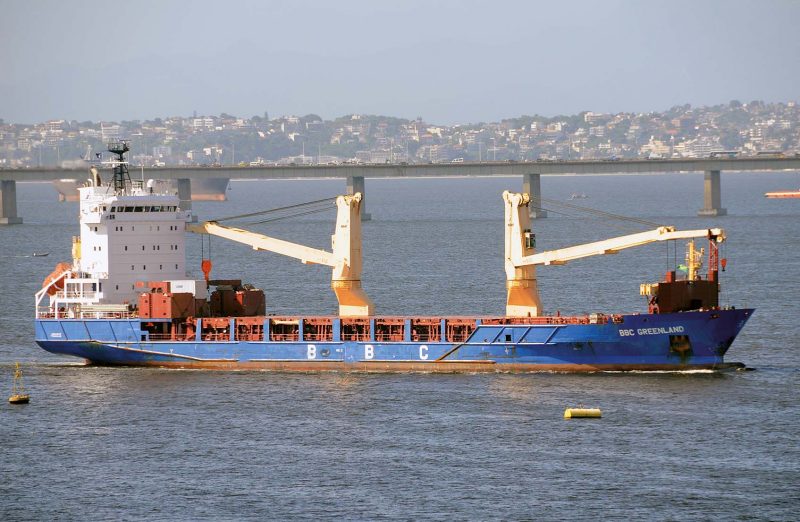
The BBC Bulk Division was formed in 2010 due to strong customer demand to create and co-ordinate customised bulk solutions. Two bulkers of 37,500 dwt, BBC Pluto and BBC Neptune, were completed in 2010 by the Tianjin Xingang Shipbuilding yard in China with a loaded draft of 10.4 metres and each equipped with four cranes of thirty tonnes capacity. Bulkers chartered by the BBC Bulk Division have included Daxia of 56,800 dwt completed by the Cosco Dalian shipyard in 2011 with a loaded draft of 12.8 metres and equipped with four cranes of 36 tonnes capacity.
Briese Research Team
Briese Schiffahrts also manage eight research vessels for the German Government named Elisabeth Mann Borgese, Maria S. Merian, Alkor, Heincke, Poseidon, Polarfuchs, Meteor and Sonne. The Briese Research management team also offer its own special purpose vessel Grinna for biological explorations. Grinna is of 285 grt and was built in 1980 and has a single hold equipped with a crane with plenty of accommodation for a small team of scientists.
Additionally, the Briese Research management team offer chartering and brokerage of other special purpose vessels e.g. buoy lifters, supervision of newbuilding projects, and the selection and recruitment of qualified crew members. The design, creation and delivery of logistics models using intermodal port facilities including rail shipments is another function of this important Briese management team.
Postscript
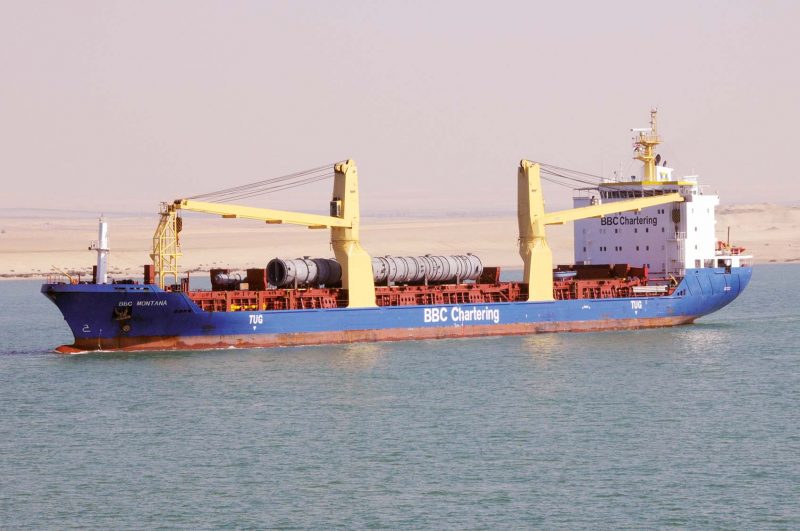
Briese Schiffahrts Gmbh and Co. KG now have an onshore office staff of 225 employees and over 1,850 seafarers employed from the Philippines, Russia, Ukraine and other countries in their huge fleet. There are 25 Briese offices around the world offering heavy lift and project cargo solutions for customers using vessels in the range of 3,500 dwt to 37,300 dwt with lifting capacities of up to 800 tonnes. New vessels coming into service will lift this upper limit to 900 tonnes and will be able to serve almost any port and offshore operation anywhere in the world. One hundred vessels of the 160 ship fleet have been built in Chinese yards, with new offices opened in 2016 in Beijing as the huge Chinese manufacturing capacity further drives the process of expansion for the entire Asian region.
BBC vessels have blue hulls and yellow cranes with ‘BBC Chartering’ and the company logo in white on both sides of the hull, which is also shown in black on the front of the accommodation block. The funnel colours are white bearing a stylised ‘b’ with horizontal segments of black, blue and red. The fleet operate worldwide transporting heavy lifts of all kinds, including locomotives or giant oversized mining trucks as deck cargo, to many ports in the world from Santos in Brazil to Yahata in Japan and Ponta Delgada in the Azores.
An important part of the Briese strategy for handling heavy lift cargo is their stevedoring businesses in Bremen, Emden and Papenburg (BERA and EPAS). Cargo is forwarded by rail, truck and inland barge to storage areas in BERA and EPAS e.g. wind power generators from the Enercon plant and rotors of wind turbines from the GE-Wind plant.

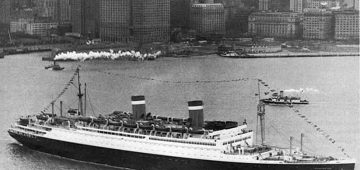
Comments
Sorry, comments are closed for this item